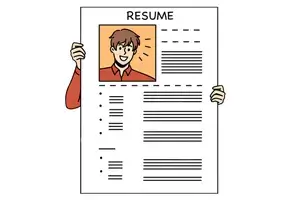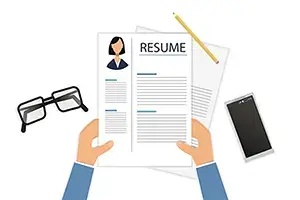Navigating Career Changes on Your Resume

In the dynamic landscape of today's job market, the concept of a linear career path is evolving. More professionals are embracing the idea of career changes as a means of personal and professional growth. While transitioning to a new field or industry can be invigorating, the challenge lies in effectively communicating these changes on your resume. In this blog post, we'll explore strategies to navigate career changes on your resume, ensuring that your document not only reflects your diverse experiences but also positions you as a valuable candidate in your desired field.
1. Craft a Compelling Professional Summary
Begin your resume with a professional summary that succinctly communicates your overall professional identity and the key skills and experiences you bring to the table. Emphasize transferable skills that are relevant to your new career path, showcasing how your diverse background equips you for success.
2. Focus on Transferable Skills
Identify and highlight transferable skills that are applicable across industries. These skills could include communication, problem-solving, project management, leadership, and adaptability. Illustrate how these skills have been integral to your success in your previous roles and how they align with the requirements of your new field.
3. Emphasize Relevant Achievements and Projects
In the experience section of your resume, prioritize achievements and projects that are most relevant to your target industry. Quantify your accomplishments whenever possible and showcase how your contributions have made a positive impact. This approach allows you to draw attention to your abilities rather than specific job titles.
4. Create a Functional or Combination Resume
Consider using a functional or combination resume format if your career change involves a significant shift in roles. A functional resume allows you to highlight skills and accomplishments without focusing on the chronological order of your work history. Meanwhile, a combination resume combines elements of both chronological and functional formats, providing a comprehensive overview of your qualifications.
5. Address the Career Change in Your Cover Letter
Your cover letter is an invaluable tool for explaining the reasons behind your career change. Use this space to share your motivation, highlight your passion for the new field, and connect the dots between your past experiences and your future goals. Be genuine and compelling in conveying your story.
6. Showcase Relevant Training and Education
Highlight any additional training, certifications, or education you've undertaken to support your career change. This could include workshops, courses, or degree programs that have equipped you with the necessary knowledge and skills for your new path.
7. Leverage Networking and Informational Interviews
Networking is a powerful tool for career changers. Engage in informational interviews with professionals in your target industry to gain insights and build connections. Mention these experiences on your resume, showcasing your proactive approach to learning about and transitioning into the new field.
8. Be Mindful of Language and Terminology
When describing your experiences, be mindful of using language and terminology that is relevant to your new industry. This not only demonstrates your familiarity with the field but also ensures that your resume resonates with hiring managers in your target sector.
Conclusion
Navigating a career change on your resume requires a thoughtful and strategic approach. Embrace the opportunity to showcase your adaptability, diverse skill set, and passion for learning. By crafting a compelling narrative that highlights your transferable skills and aligns with the expectations of your desired industry, you'll present yourself as a candidate who brings a unique and valuable perspective to the table. Embrace the journey, and let your resume reflect the exciting possibilities that come with a new career path.
 Ensuring Perfection Before You Apply
Ensuring Perfection Before You Apply














